
Waves crash against the boats docked at MacMillan Pier off Provincetown.

A worker cuts a tree that had fallen on to a house as a storm bringing high winds passes over Kensington, Maryland.
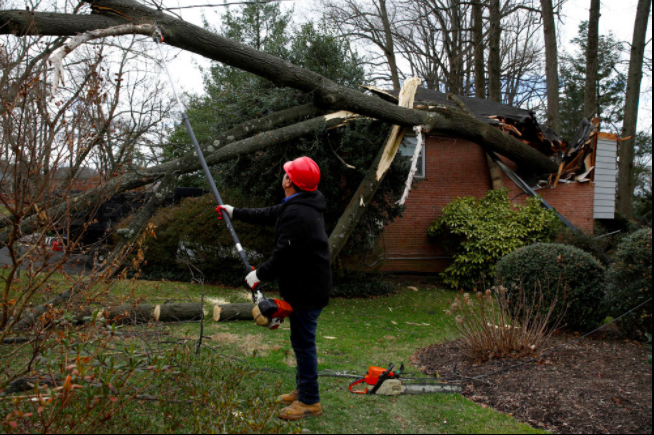
Waves crash against the seawall along Turner Road in Scituate, MA.
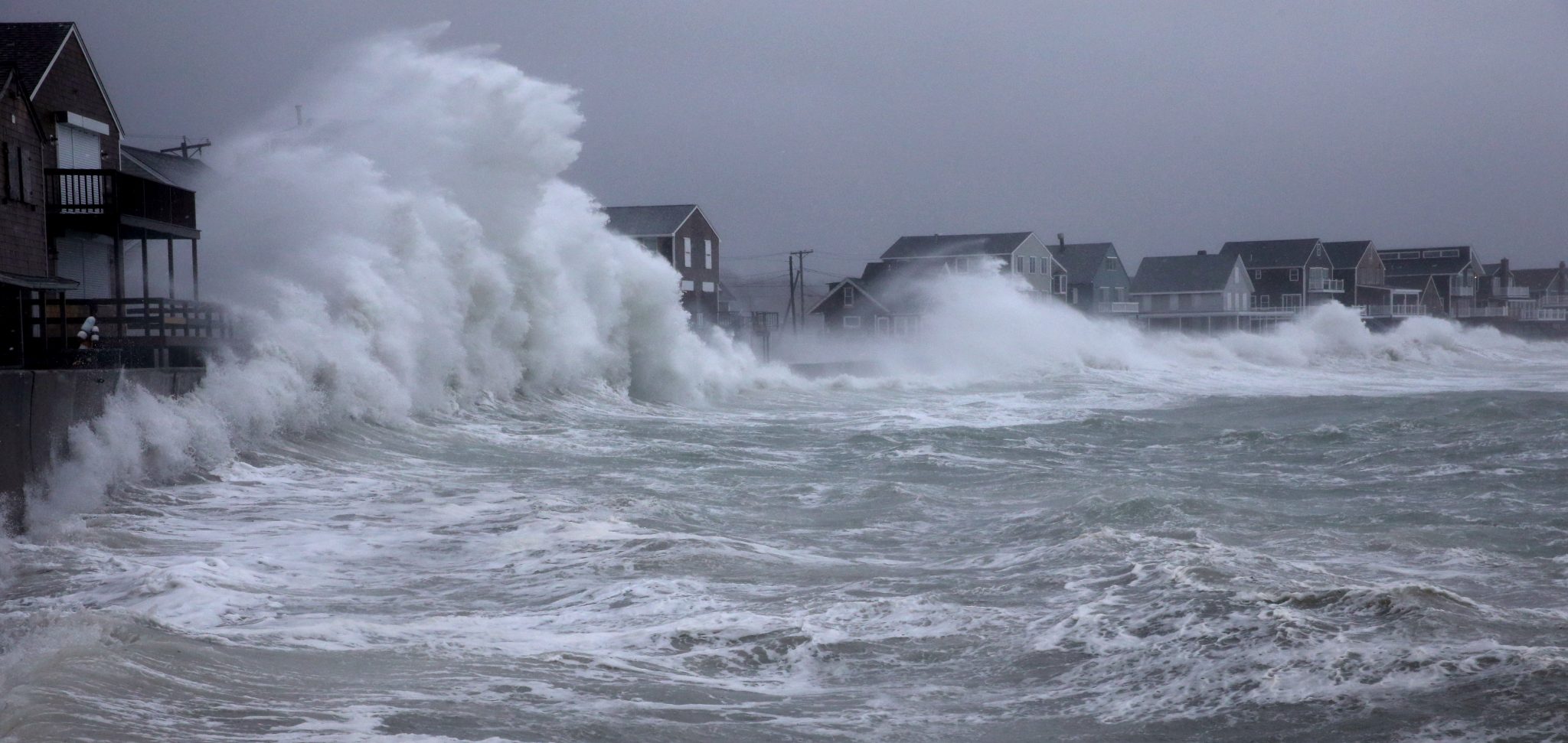
High winds downed a tree onto power lines, blocking the street and damaging a vehicle in Takoma Park, MD.
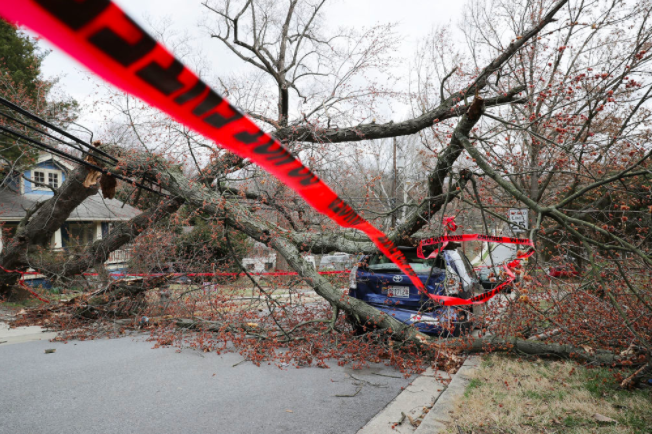
A man heads across flooded E. Squantum Street in Quincy, Mass.

Flooding on Scituate Avenue in Scituate.
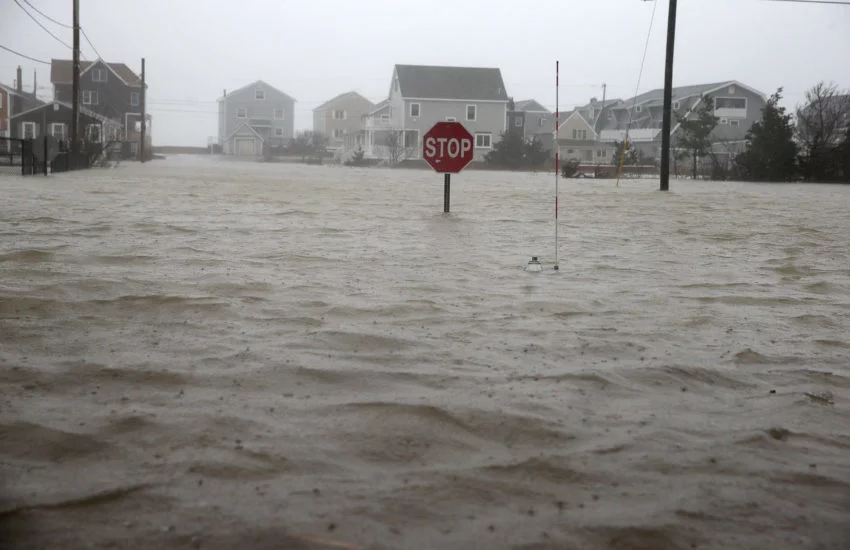
Hoboken Train Terminal.
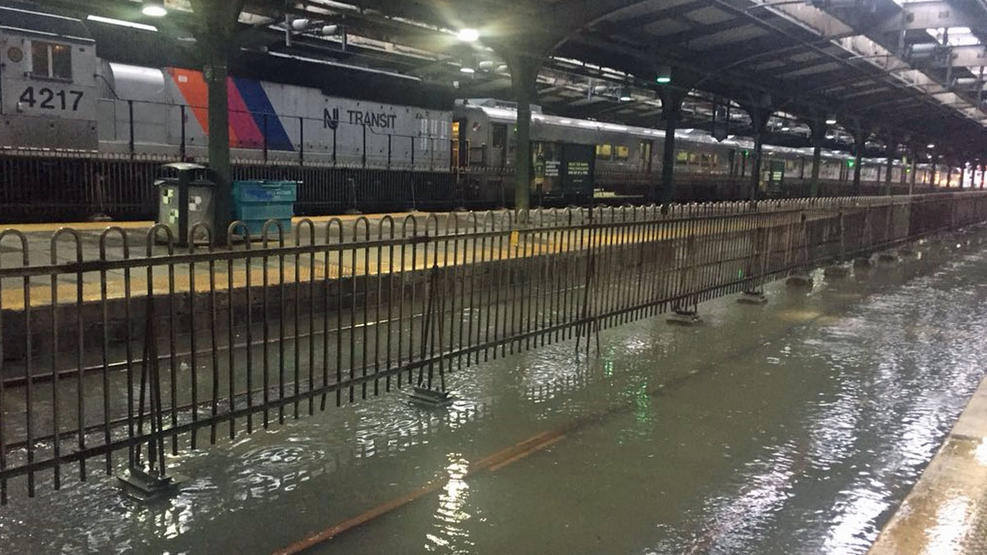
A woman gets caught by a wave of heavy seas came ashore in Winthrop, Mass.
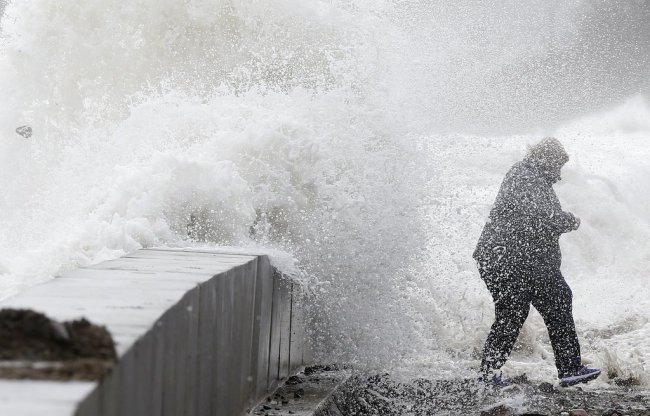
An uprooted tree in Yonkers, NY.
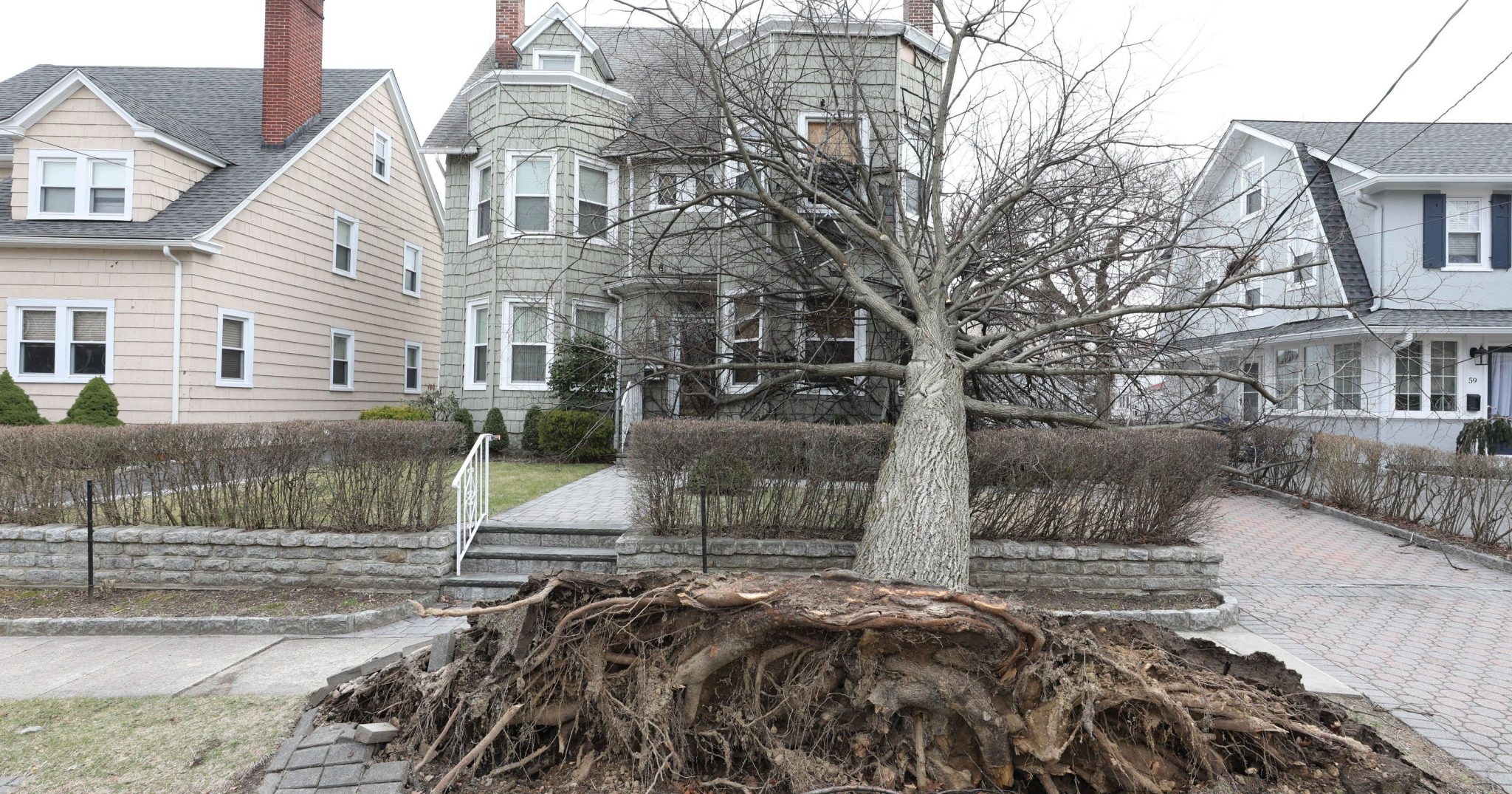
A Revolutionary War-era ship that surfaced after the storm calmed.The wreck was examined by the Maine Historic Preservation Commission and labeled as archeological site ME 497-004.
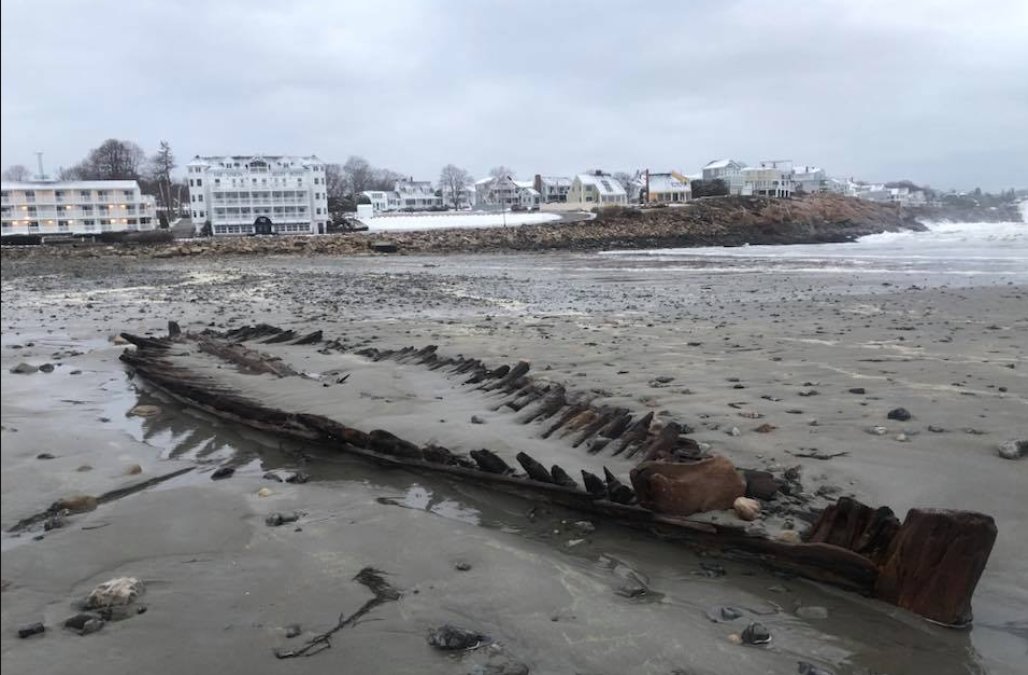
So, Why is it called a Nor’Easter?
While many assume Nor’easter is the name is a product of some kind of Maine lobsterman accent, that’s probably not true. In their book Origins of the Specious: Myths and Misconceptions of the English Language, Patricia T. O’Conner, and Stewart Kellerman write:
The word ‘nor’easter’ is a contraction of ‘northeaster,’ a blustery storm with northeasterly winds. The storm has long been associated with New England, but the term ‘nor’easter’ isn’t native to the land of clam chowdah, according to many linguists and a great many coastal New Englanders. The locals, they say, have always pronounced the word by dropping the two r’s, not the th, making it sound something like ‘nawtheastah.’
Instead, “Nor’easter” seems to come from across the Atlantic Ocean. As far back as the Elizabethan period, the English used “nor’” and “nor’east” to refer to compass points.
